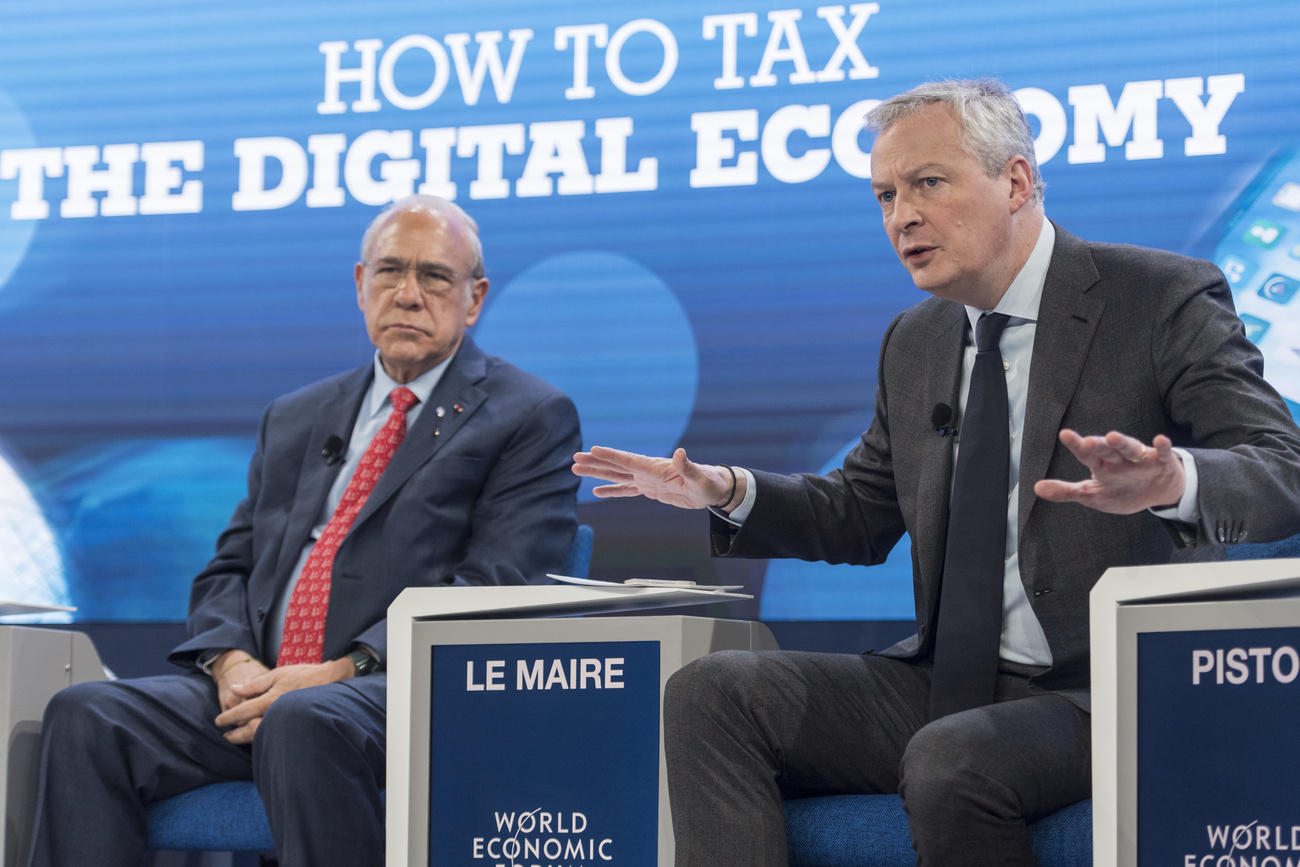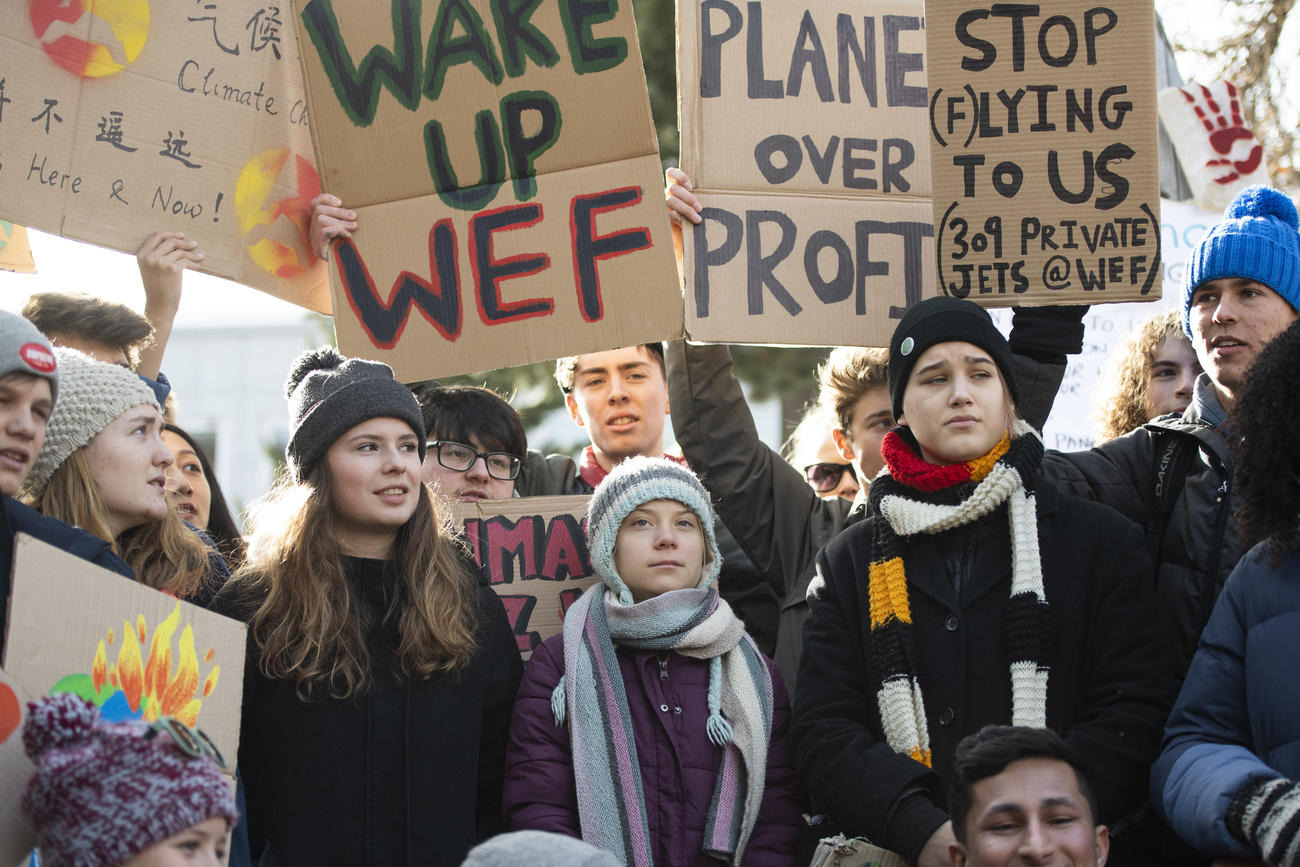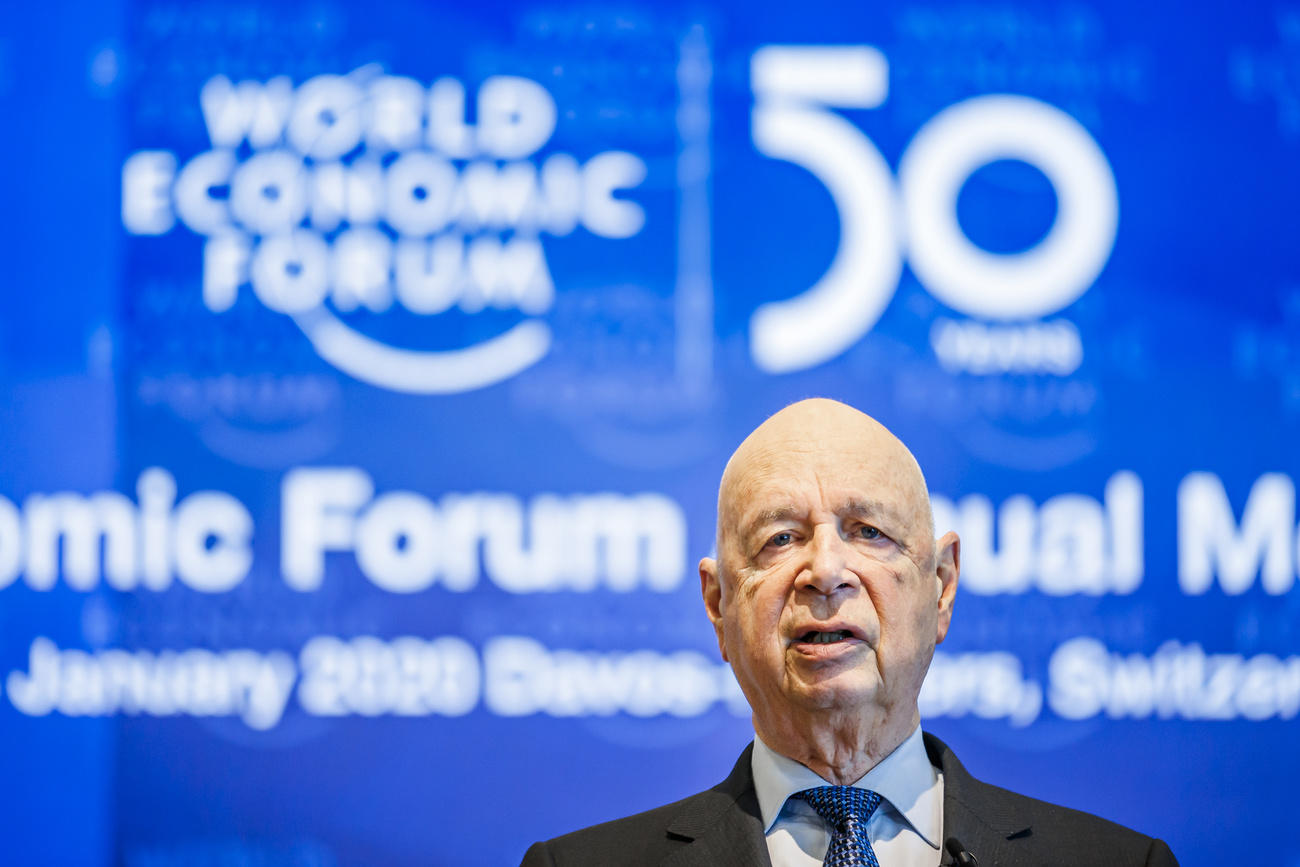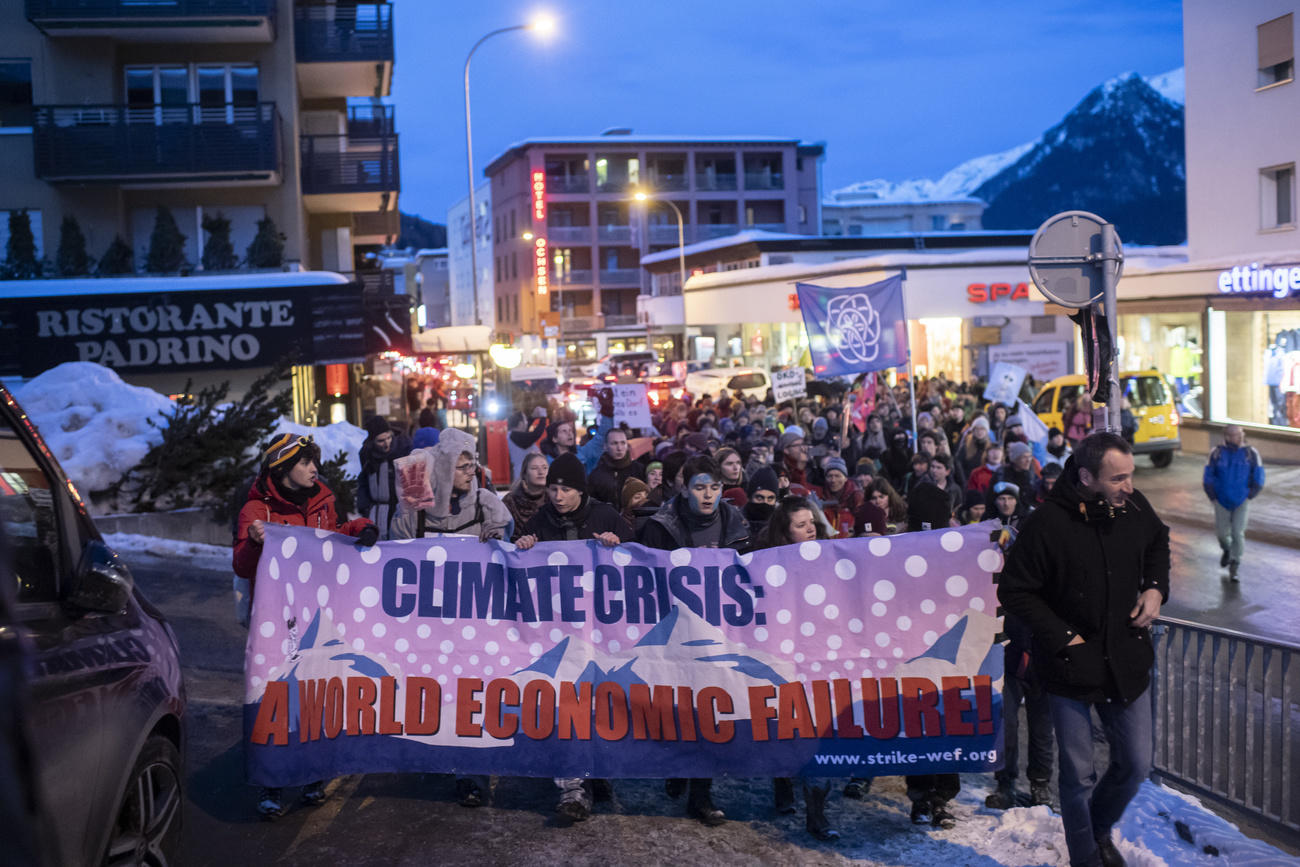Trust is what makes Davos work, but it is also its biggest problem

It’s easy to come to the World Economic Forum in Davos with a good dose of scepticism, yet most people leave with a sense that it was worthwhile. But not because it is improving the state of the world.
Our analysis of what the biggest global companies in Switzerland are up to. This week: reflections on WEF 2020 in Davos.
There are few events on the planet where in the span of a few hours you’ll meet the Dutch CEO of the largest Japanese advertising company, the Moroccan founder of a California-based gene sequencing start-up, a Swiss ambassador and a South African model and lawyer with albinism.
This is the magic of Davos. CEOs, Nobel prize winners and cultural icons hand out business cards to journalists as if they were their most trusted peers. The trust and kindness among a carefully-selected and vetted group of some 3,000 individuals is what makes Davos work.
But it is also the event’s Achilles’ heel. Dutch historian Rutger Bregman, who created a stir by raising the issue of taxes at the 2019 WEF, told the New York TimesExternal link: “Some people believe that the global elite go to Davos and plan for world domination, but it’s much scarier than that. You go there and you find out that all those people are pretty nice. But friendliness can stand in the way of justice.”
Few dissenting voices can be found in Davos and if they are there, they are often lost in all the good manners or crowded out by other noise. Sure, Greta Thunberg was there but to make a statement, not to fight on the same stage as oil tycoons. She was on panels with other teenage activists or like-minded academics and political figures, rather than going head to head with the CEO of Chevron.
Only economist Joseph Stiglitz could be found handing out a rebuttalExternal link to President Donald Trump’s speech while the rest of the WEF delegates snapped photos of the US president as if they were paparazzi. Founder Klaus Schwab took the opportunity of President Trump’s visit to praise him for his inclusiveness rather than press him on his climate agenda.
It doesn’t help that sessions like this oneExternal link on capitalism, with five corporate executives in an echo chamber, get more play than ones on the same topic where real debate and disagreementExternal link happen.
Instead of lofty commitments, could the WEF provide more meaning if it brought together people with competing narratives and points of view rather than letting them compete for television airtime?
That said, although headlines focus on the big names and pageantry of Davos, there are some rigorous debates and important signals that WEF does send.
One of the most important was around how to tax in the digital economyExternal link and how France’s new digital tax and more calls for a minimum corporate tax are driving an international framework that holds the promise of a fairer tax system. Where Switzerland stands on some of the finer points is still unclear.
There were also important debates around the antibiotics crisis, ethical frameworks for artificial intelligence, and traceability in the supply chainExternal link. Cutting-edge ideas like how Quantum computing is changing healthcare or how to disrupt rising green crime networks, were discussed, much of it behind closed doors, away from a curious public.
What did not escape the public’s attention was the focus on climate change at WEF. But behind all the climate crisis warnings was the harsh reality of business. There was palpable tension between how quickly young climate activists want to see change and how fast and far companies are willing to go.
With more than 300 official sessions, it is easy to forget that most people go to Davos because it is the most efficient way to do business deals. The spouse of one Indian business mogul told me that her husband had 90 meetings scheduled that week. Makes you wonder how many were about saving the planet?
What were your impressions? Send me a message: Jessica.davis@swissinfo.ch
Thanks for reading.

In compliance with the JTI standards
More: SWI swissinfo.ch certified by the Journalism Trust Initiative













You can find an overview of ongoing debates with our journalists here . Please join us!
If you want to start a conversation about a topic raised in this article or want to report factual errors, email us at english@swissinfo.ch.